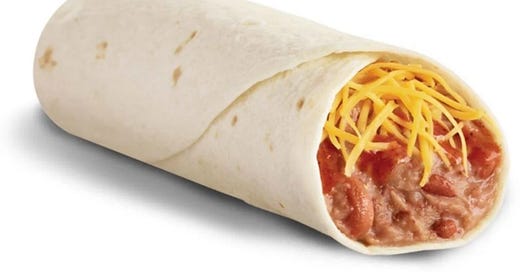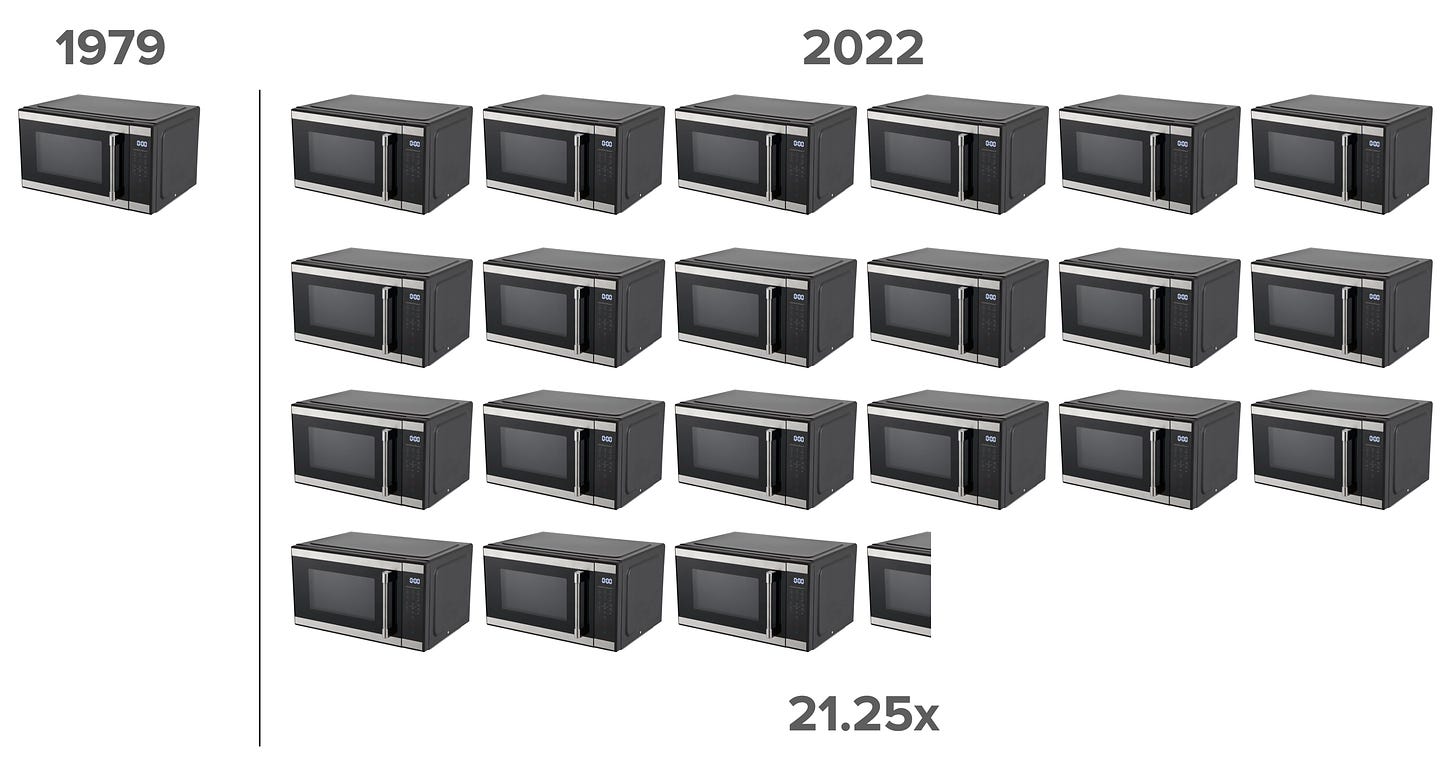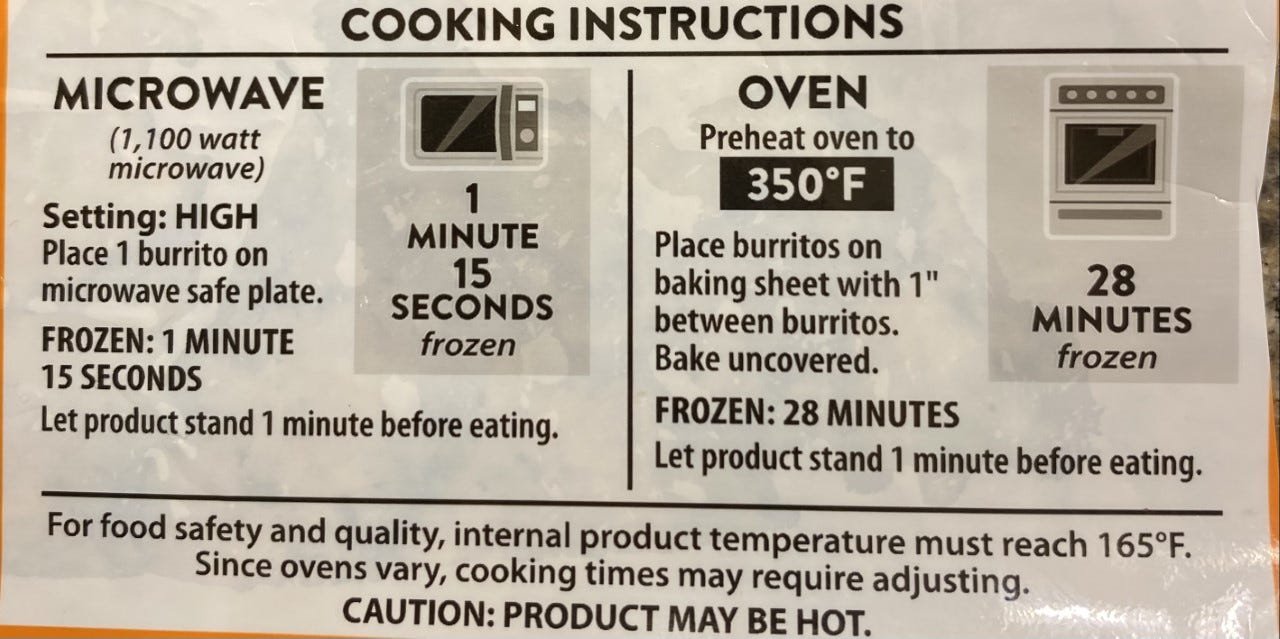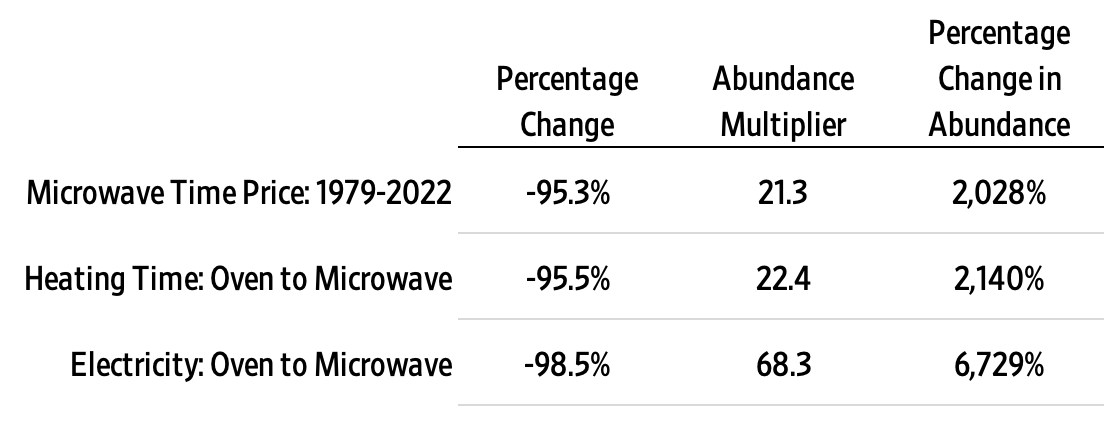College students across America love bean burritos. They provide around 200 calories of energy, 33 grams of carbohydrates, and 7 grams of protein. But they didn’t really become popular until the innovation of the microwave oven.
The microwave was invented accidentally in 1945 by Percy Spencer, a self-taught engineer. While testing a new vacuum tube called a magnetron, he discovered that a chocolate bar in his pocket had melted from the heat. He then tried popcorn. The results were beautiful. He built a metal box with an opening at one end to trap the high-density magnetic energy field inside, that could bounce around and quickly heat up the food. The first microwave oven was born. Eleven years later in 1956, Duane R. Roberts invented the frozen burrito. We now had the two key elements for an innovation in college cuisine.
In 1979 microwaves were selling at Sears for $399.85. Unskilled workers back then were earning around $3.69 per hour making the time price 108.4 hours. Today unskilled workers are earning around $14.50 an hour, and a basic microwave at Walmart is only $74. That would put the time price around 5.1 hours. The time price fell by 95.3 percent. Microwave innovation has given us 103.4 extra hours today relative to 1979. For the time it took grandpa to earn the money to buy his microwave 43 years ago, you get over 21 today. Microwave abundance has been growing at a 7.37 percent compound annual rate.
Microwaves are an example of adding knowledge to energy and atoms to make them more valuable and more abundant.
The time to heat up a burrito fell 95.5 percent from 28 minutes to 1 minute and 15 seconds. Every time you want a tasty burrito, microwaves stand ready to give you an extra 26 minutes and 45 seconds. You got this time if you were Elon Musk or a struggling student. Innovation reduces time without respect to your income level.
Microwaves also use about one-third the energy of a conventional oven. At 20 cents a kilowatt hour, using a conventional oven to heat up a burrito will cost around 28 cents versus 0.41 cents for a microwave. The energy cost has fallen 98.5 percent.
Knowledge gives us time, one of our most valuable resources.
The next time you enjoy a delicious and nutritious burrito, remember Percy Spencer, Duane R. Roberts, and the thousands of others who have discovered innovative ways of giving us more time to enjoy new culinary delights.
You can learn more about these economic facts and ideas in our new book, Superabundance, available at Amazon. Jordan Peterson calls it a “profoundly optimistic book.”
Gale Pooley is a Senior Fellow at the Discovery Institute and a board member at Human Progress.








